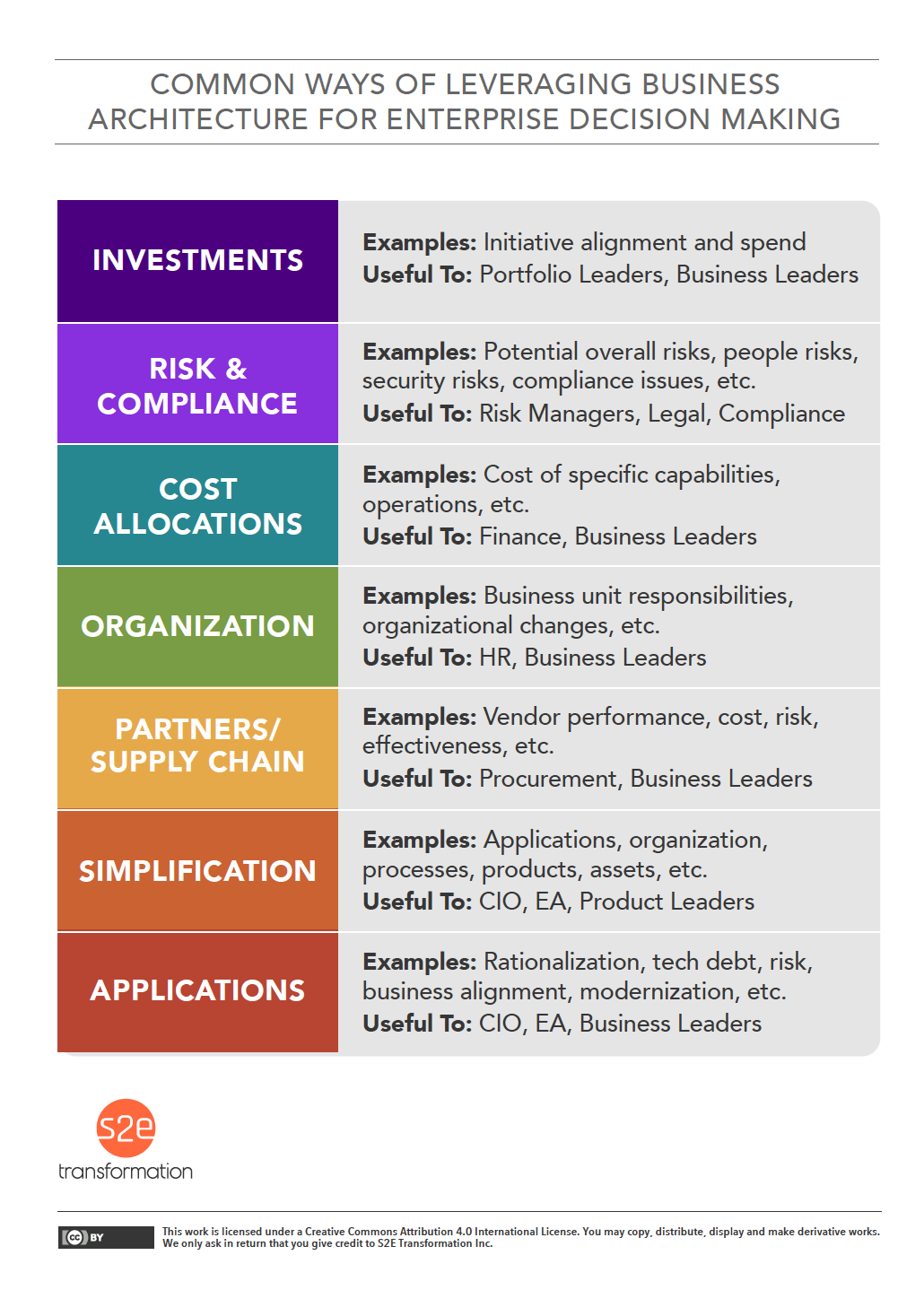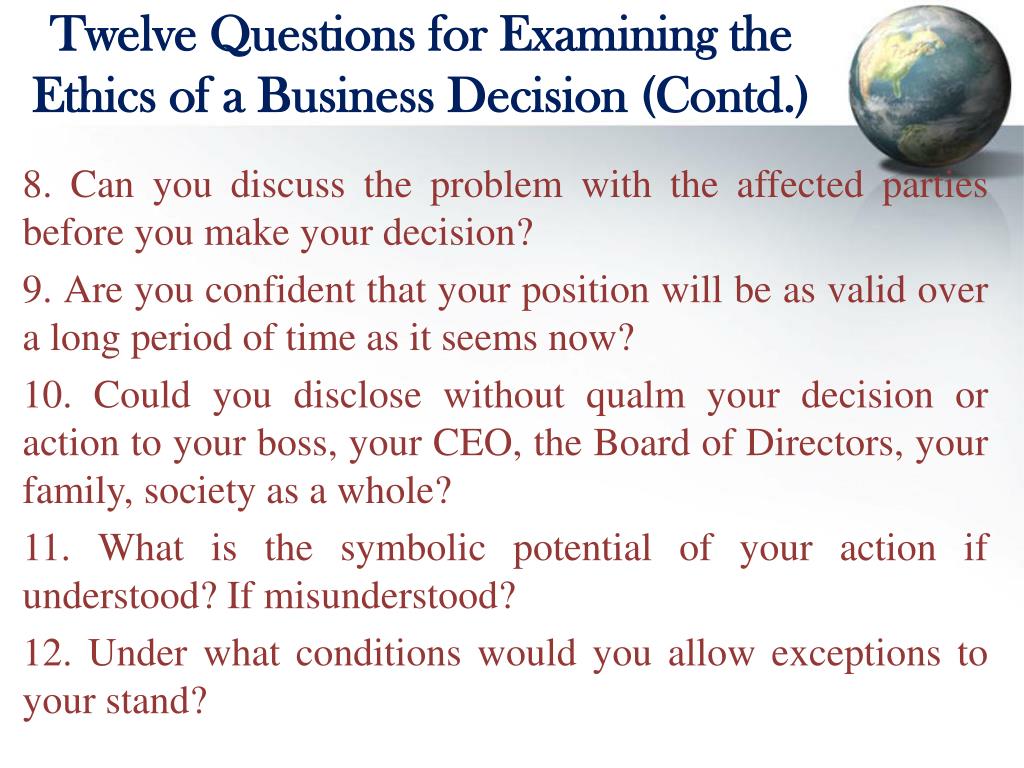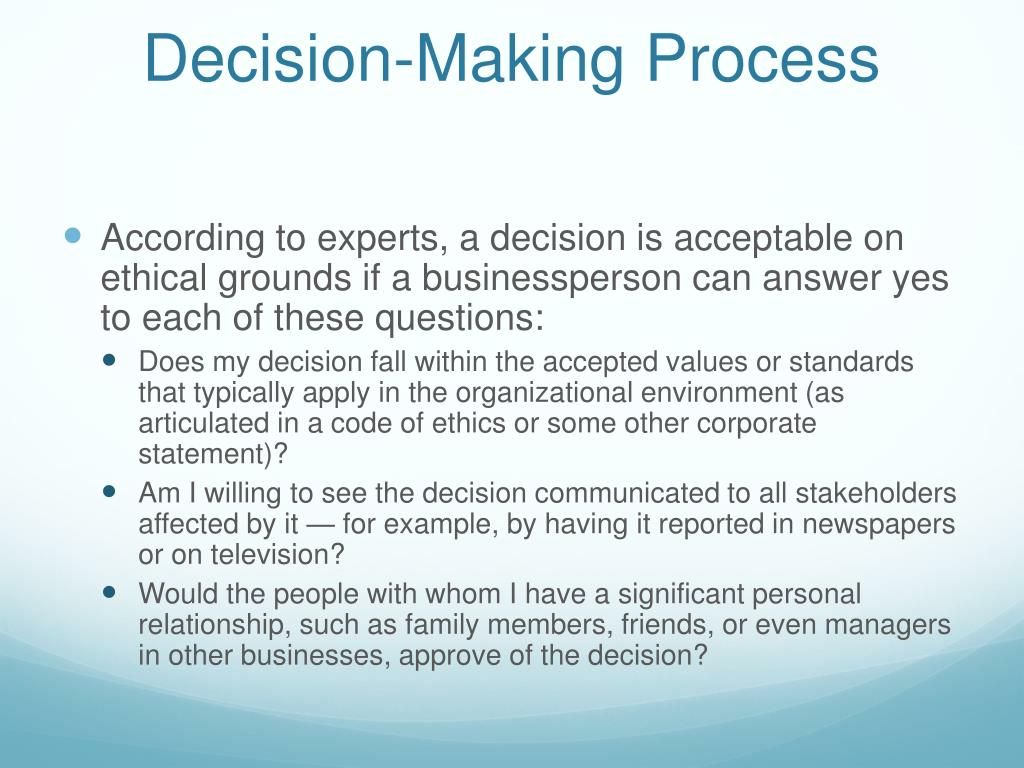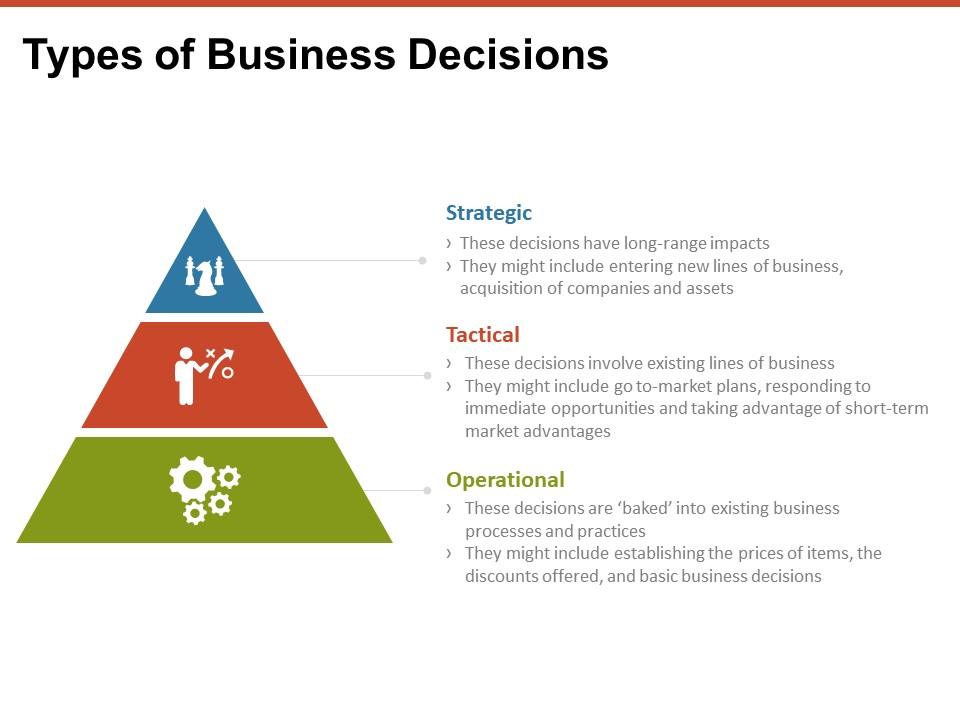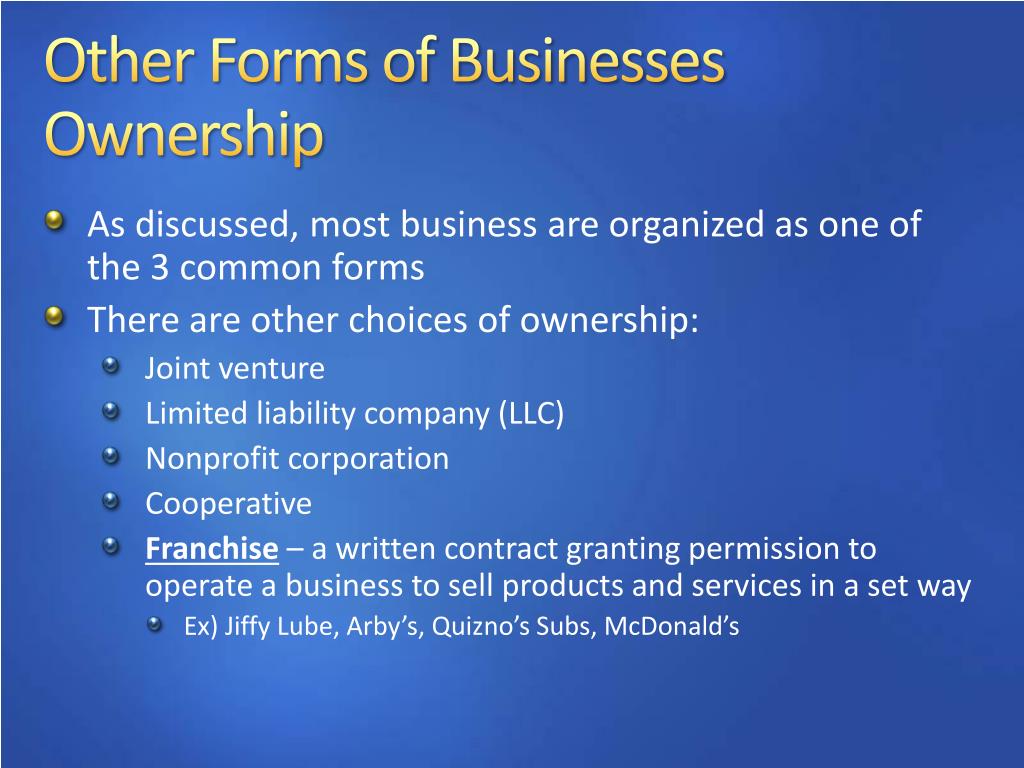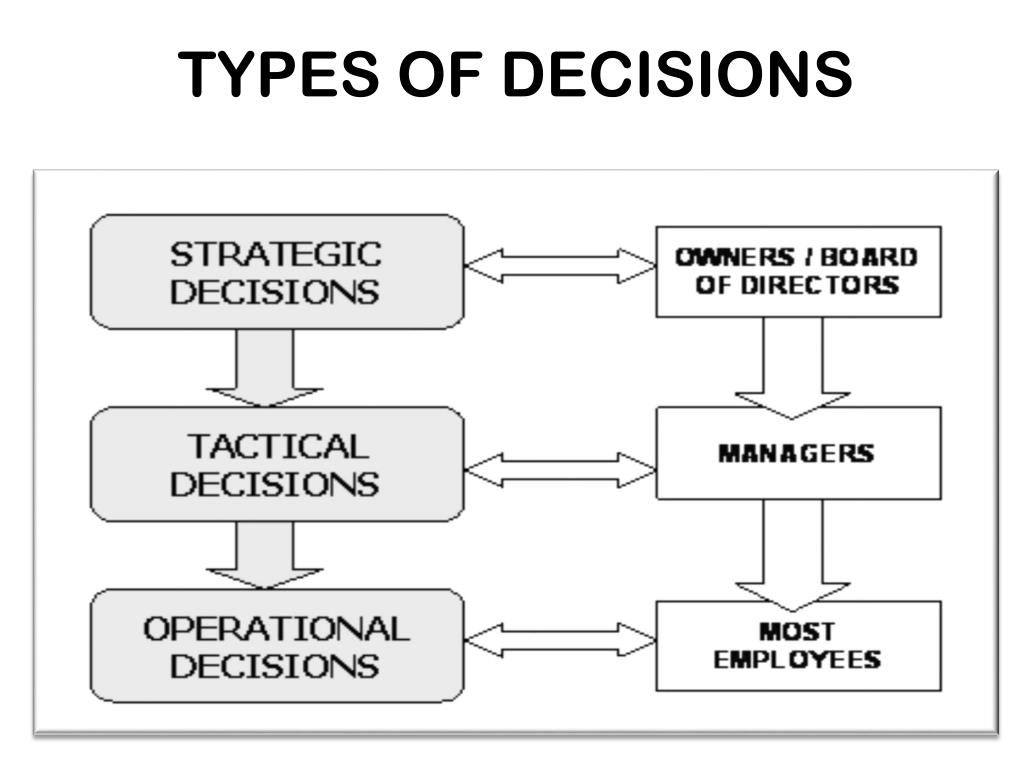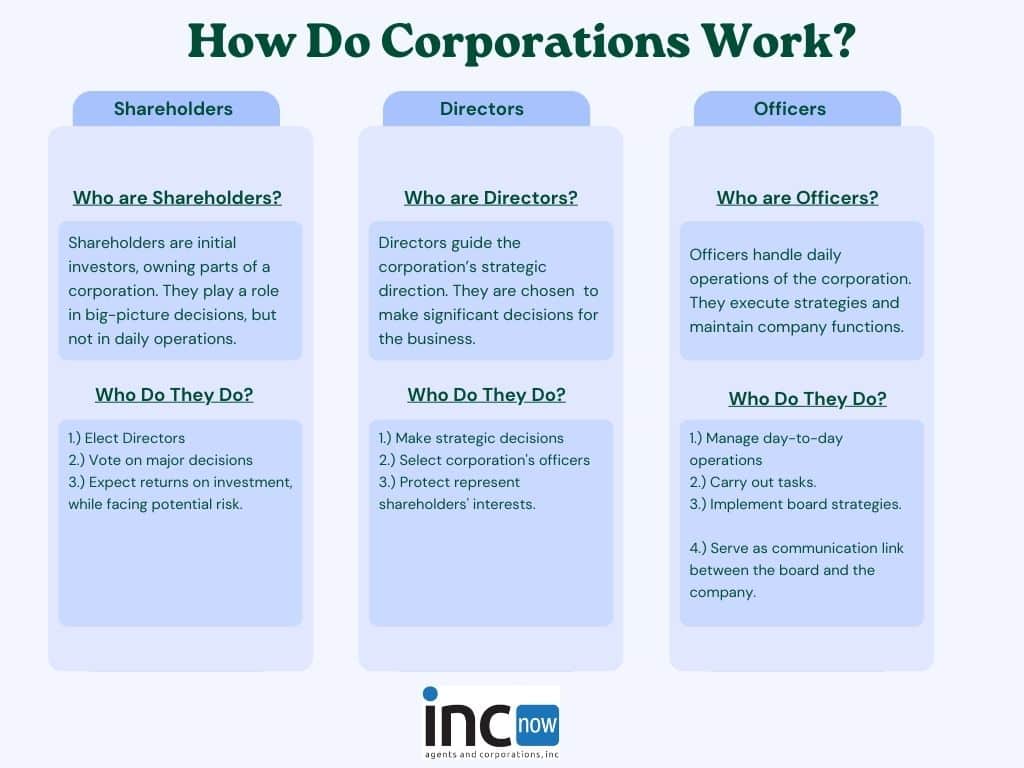The Business Decisions Of A Corporation Are Made By Whom
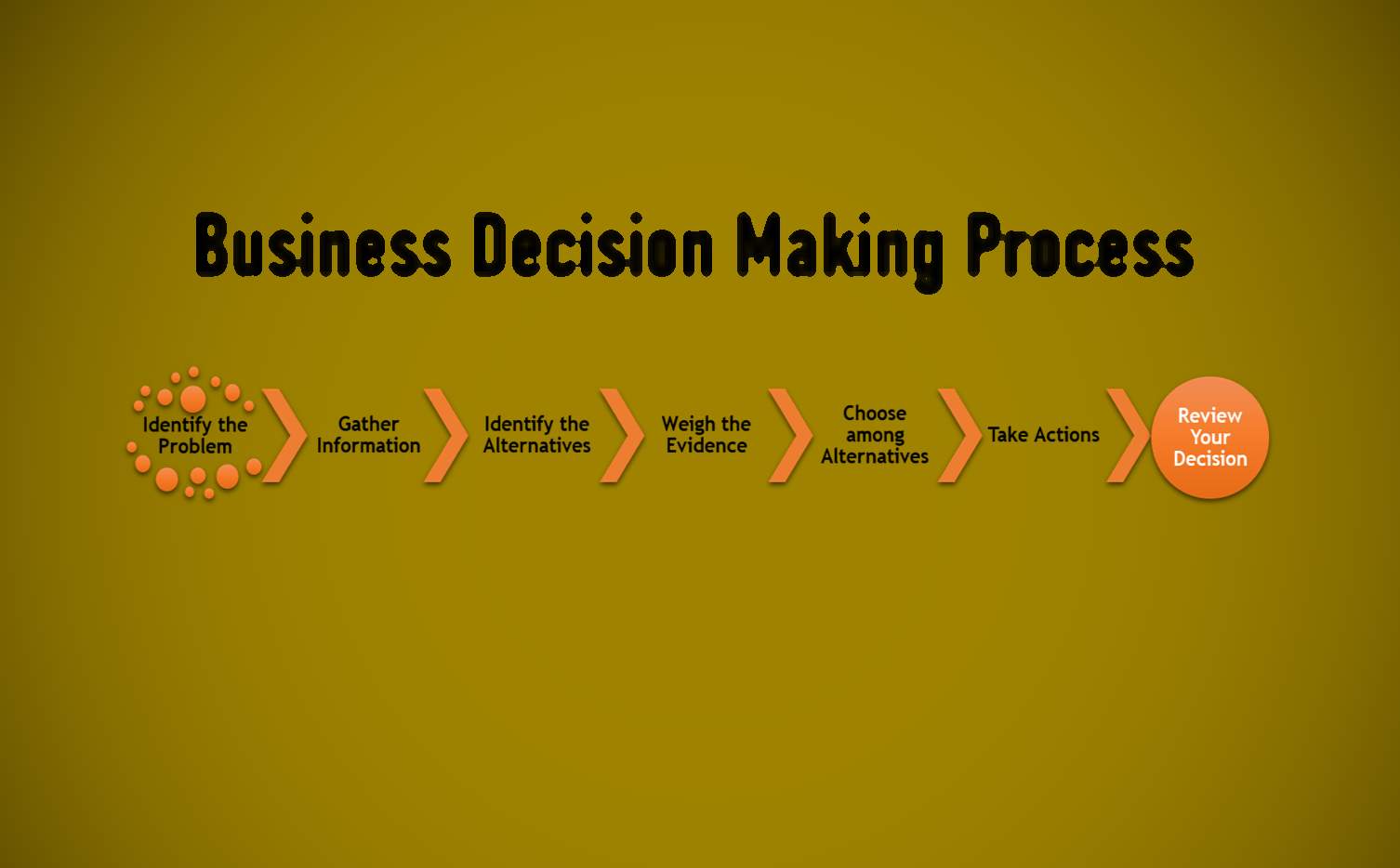
Imagine a bustling boardroom, sunlight streaming through the panoramic windows, illuminating faces etched with concentration. Around the mahogany table sit individuals, each a specialist in their own right, collectively shouldering the weight of decisions that could ripple through communities and markets. The air hums with anticipation, a silent acknowledgment of the power held within those four walls.
The question then arises: who exactly makes these pivotal business decisions within a corporation? The answer, while seemingly straightforward, involves a complex interplay of individuals and structures, from the CEO and board of directors to various management levels and even, indirectly, the shareholders themselves.
The Apex: Board of Directors and the CEO
At the summit of the decision-making pyramid sits the board of directors. These individuals, elected by shareholders, are entrusted with the ultimate oversight of the company's direction and performance. Their primary responsibility is to act in the best interests of the shareholders, ensuring the long-term sustainability and profitability of the organization.
The CEO (Chief Executive Officer) is the linchpin, the individual responsible for executing the board's strategic vision. They translate the board's directives into actionable plans, managing day-to-day operations and steering the company towards its goals.
The CEO's influence is considerable, but they are ultimately accountable to the board.
Management's Role
Beneath the CEO, a cascade of management levels plays a crucial role in shaping business decisions. From Chief Financial Officers (CFOs) analyzing financial data to marketing directors shaping brand strategy and product managers guiding development, each layer contributes specialized knowledge.
These managers gather information, analyze market trends, and propose strategies for consideration by senior leadership. They are the engines of innovation and efficiency, constantly seeking ways to improve performance and adapt to changing circumstances.
Their insights are vital for informed decision-making at the highest levels.
The Influence of Shareholders
While not directly involved in the daily decision-making process, shareholders wield considerable influence. Through their voting rights, they can elect board members and approve major corporate actions, such as mergers and acquisitions.
Activist investors, in particular, can exert significant pressure on companies to adopt specific strategies or address perceived shortcomings. Their voices, often amplified through media and public campaigns, can sway public opinion and force management to reconsider their approach.
Ultimately, shareholders are the owners of the company, and their collective voice matters.
Checks and Balances: A System of Governance
The intricate structure of corporate decision-making is designed to provide a system of checks and balances. The board oversees the CEO, management provides expertise, and shareholders hold the entire organization accountable. This layered approach aims to prevent unilateral decisions and ensure that diverse perspectives are considered.
However, the system is not without its flaws. Conflicts of interest can arise, and the pursuit of short-term profits can sometimes overshadow long-term sustainability.
Effective corporate governance requires transparency, ethical leadership, and a commitment to serving the interests of all stakeholders, not just shareholders.
The Importance of Ethical Considerations
The best business decisions are not solely driven by financial considerations. Ethical values, social responsibility, and environmental sustainability are increasingly recognized as essential components of long-term success.
Companies that prioritize these factors often enjoy stronger brand reputations, greater employee loyalty, and increased customer trust.
As consumers become more discerning, ethical considerations are becoming a critical driver of business decisions.
In conclusion, the process of corporate decision-making is a multifaceted endeavor involving a diverse range of actors. The board of directors, the CEO, management teams, and shareholders all contribute to shaping the direction of the company.
The challenge lies in balancing competing interests and ensuring that decisions are not only profitable but also ethical, sustainable, and beneficial to society as a whole. By understanding the roles and responsibilities of each participant, we can better appreciate the complexities and the profound impact of corporate decisions on our world.
